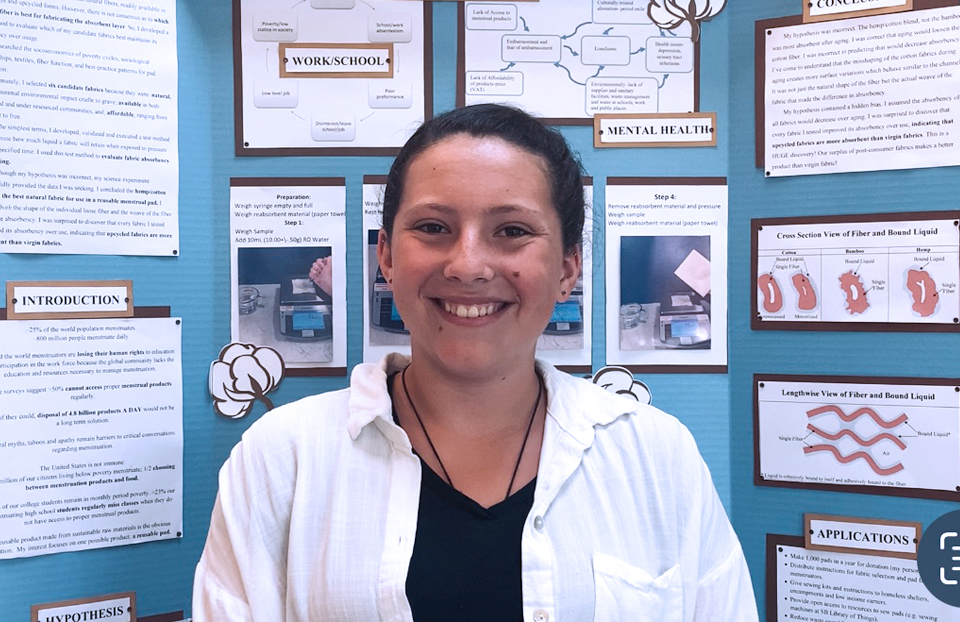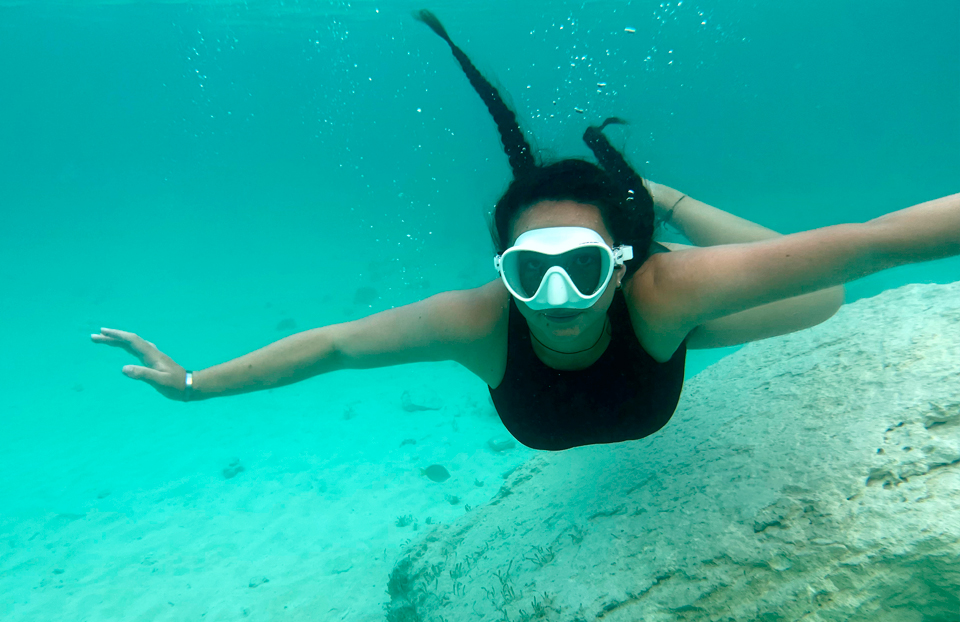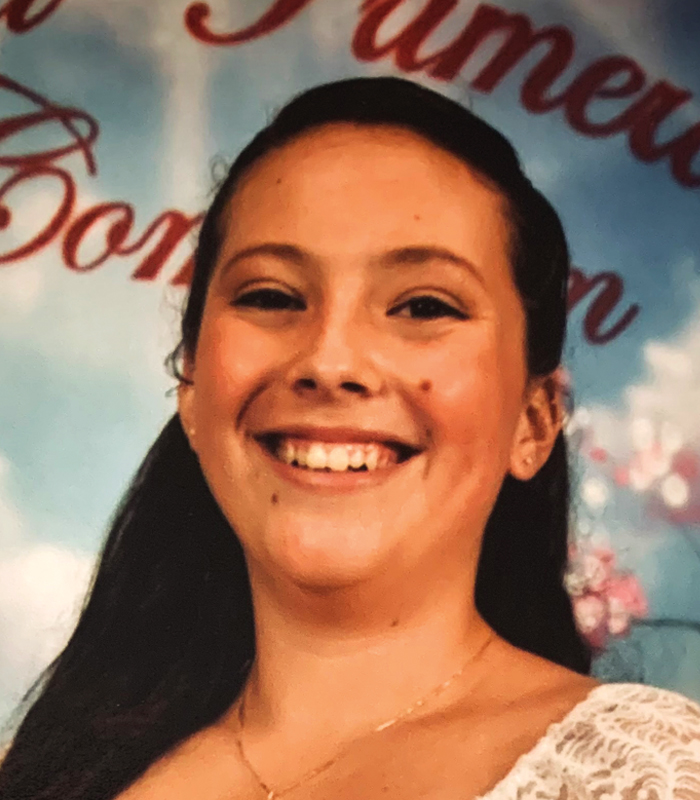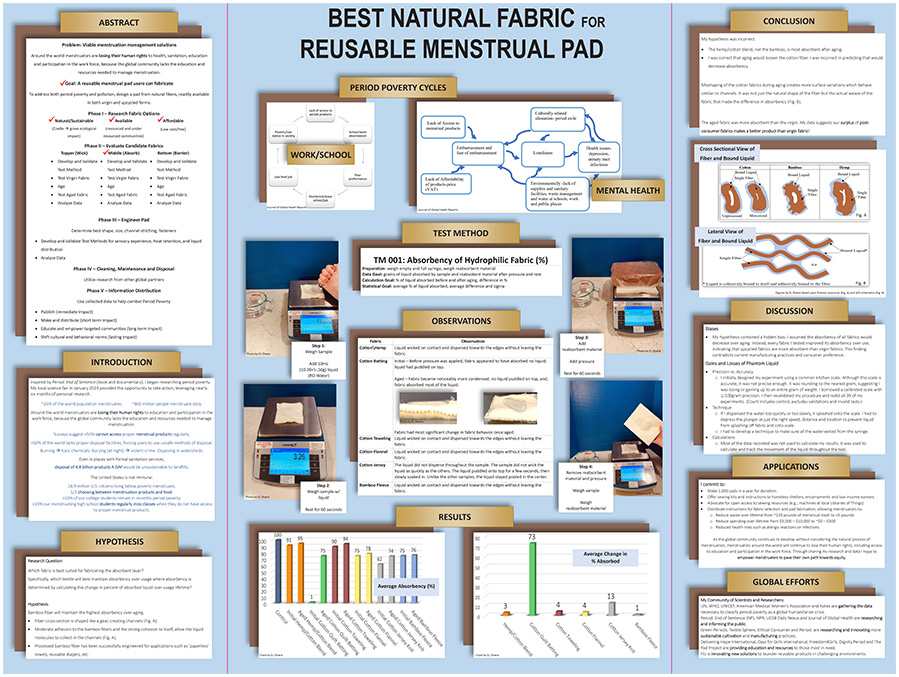Elizabeth Louise Olvera
7th Grade, Santa Barbara Charter School HomeBased Partnership
Goleta, CA
Ellie Lou examined the absorbency of six eco-friendly sample fabrics she made from natural fibers, including bamboo, cotton and hemp, to create affordable and reusable menstrual pads.
Best Natural Fabric for a Reusable Menstrual Pad (Users Can Fabricate)
VIEW POSTERProject Background
Ellie Lou was inspired by the book and documentary called Period. End of Sentence. It tells the story of women in rural India fighting stigma about menstruation and making their own sanitary pads. “The global community lacks the education and resources needed to manage menstruation,” Ellie Lou says. Although about 25 percent of the world population has periods, surveys suggest more than 50 percent of people with periods cannot access proper menstrual products. These items can also be difficult to dispose of. And m any people, even in the United States, skip class or miss work because they lack access to period products, Ellie Lou says. So she looked into different natural fibers to make affordable reusable menstrual pads.
Tactics and Results
Inexpensive, eco-friendly period products “will empower menstruators to pave their own path towards equity while reducing waste, spending and health risks,” Ellie Lou says. She examined the absorbency of six fabrics made from natural fibers, including bamboo, cotton and hemp. She also tested new versions and used ones taken from upcycled fabric. For each fabric type, Ellie Lou sewed three-layer samples that were 4 square inches, or 10 square centimeters. To test each sample’s absorbency, she weighed it before applying 10 milliliters, or about 0.3 fluid ounces, of water on top. One minute later, she used a different material to re-absorb any lingering liquid on the sample. Ellie Lou then weighed both the sample in question and her re-absorbent material. After testing each sample three times, she found that the fabric made of a cotton and hemp blend was the most absorbent. The aged fabrics also worked better than their newer counterparts.

Beyond the Project
Other components of a menstrual pad, including a topper and a barrier, must be tested as well, Ellie Lou says. “I also need to consider sensory parameters, such as comfort and heat retention.”
Other interests
“My absolute passion is being in the water, especially the open ocean,” Ellie Lou says. She enjoys swimming, snorkeling, kayaking, surfing and — most of all — free diving. She wants to be an environmental engineer. “A career in environmental engineering offers a variety of occupations that use science to bridge human needs and wants with the stewardship of nature,” Ellie Lou explains.


